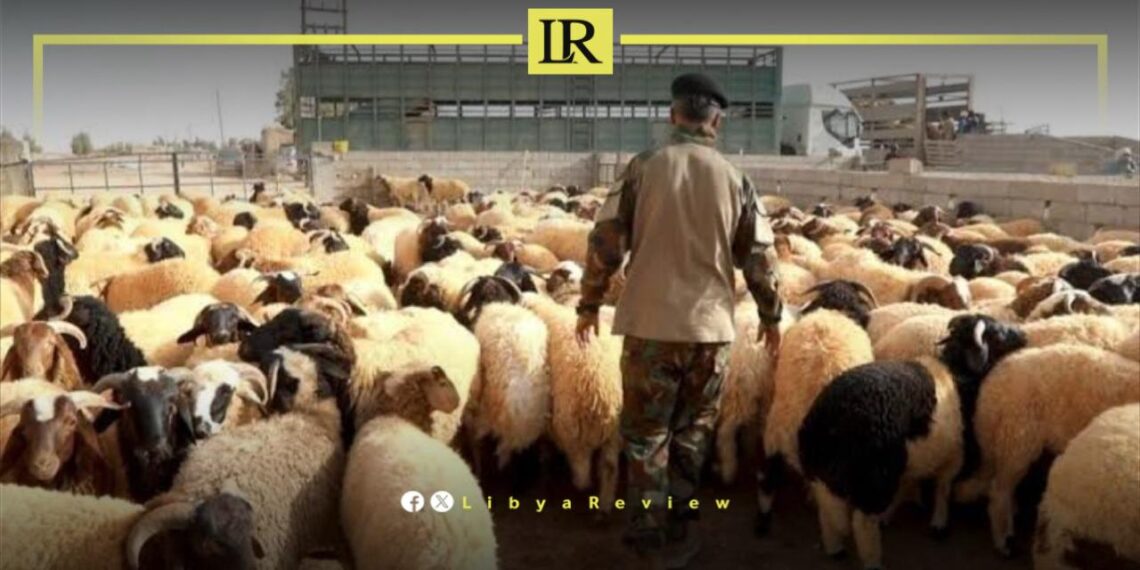On Thursday, the Commander-in-Chief of the Libyan National Army (LNA), Field Marshal Khalifa Haftar, directed the distribution of 900 local sheep to low-income families in the cities of Ajdabiya, Al Jaghbub, and Tobruk ahead of Eid al-Adha.
This initiative aims to provide sacrificial animals to families in need during the religious festival, easing their financial burden and ensuring they can partake in the traditional celebrations.
In Ajdabiya, a total of 500 sheep are allocated for distribution to low-income families. Another 200 sheep are designated for families in Al-Jaghbub, and similarly, 200 sheep will be distributed among needy families in Tobruk. The committee appointed by Haftar is set to oversee the fair and efficient distribution of the sacrificial animals. This move reflects the LNA’s commitment to social welfare and its efforts to support the community during challenging economic times.
Libya has been grappling with economic instability and political turmoil since the 2011 revolution that led to the ousting of Muammar Gaddafi.
The ongoing conflict has severely impacted the livelihoods of many Libyans, leading to a rise in poverty and hardship among various communities. Eid al-Adha is one of the most significant Islamic holidays, commemorating the willingness of Prophet Ibrahim (Abraham) to sacrifice his son as an act of obedience to God. During this festival, Muslims around the world perform the ritual of Qurbani (sacrifice) and distribute the meat to the poor and needy, emphasizing the values of charity and community support.
Haftar’s initiative is part of a broader strategy by the LNA to enhance its social responsibility programs, which include various forms of humanitarian aid and community support. Such actions are crucial in a country where the social fabric has been strained by years of conflict and economic hardship.
The distribution of sacrificial animals for Eid al-Adha highlights the importance of community solidarity and the role of leadership in supporting those in need. It underscores the intersection of cultural traditions and modern-day challenges, showcasing how leadership can play a pivotal role in societal well-being.
As Libya continues to navigate its path toward stability and prosperity, initiatives like these provide a glimmer of hope and a reminder of the enduring spirit of generosity and care within the Libyan society. Field Marshal Haftar’s directive is a testament to the power of community-oriented leadership in fostering resilience and unity in times of adversity.


